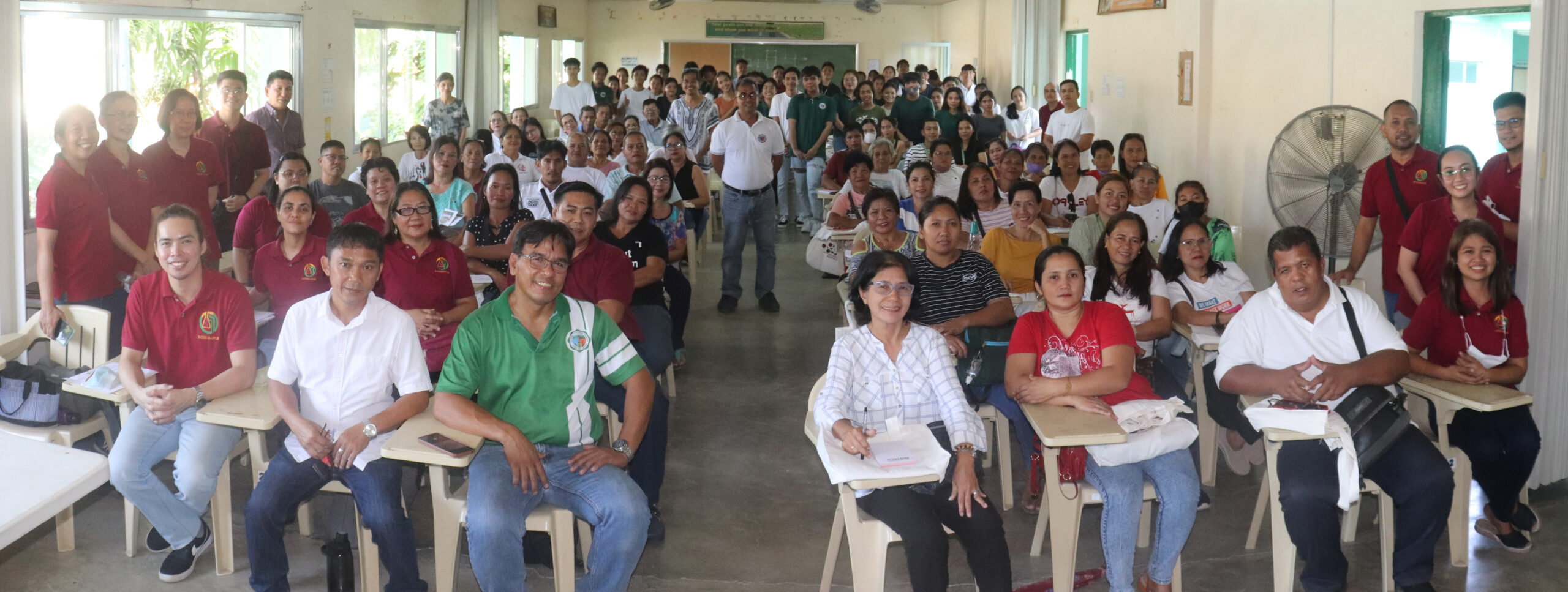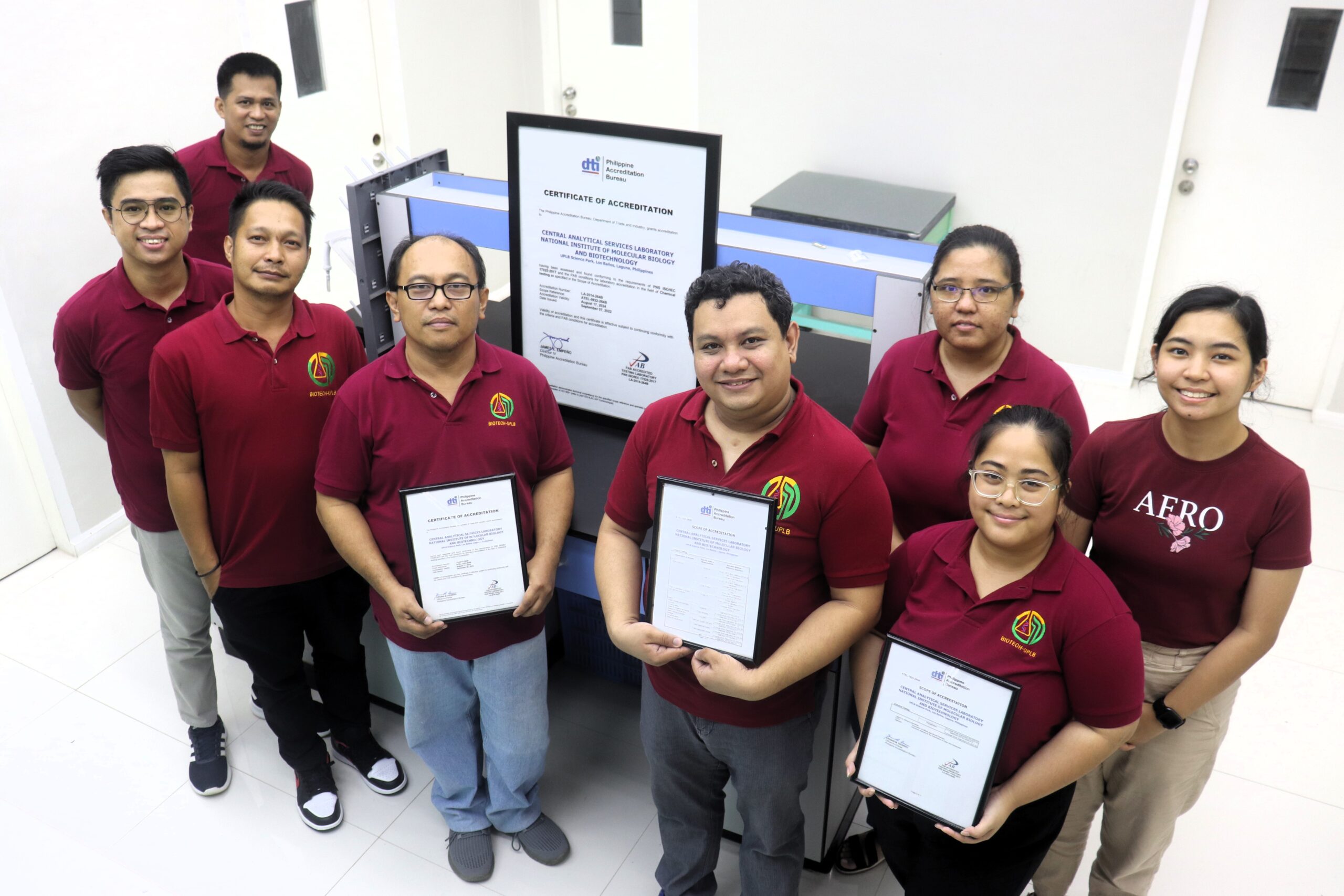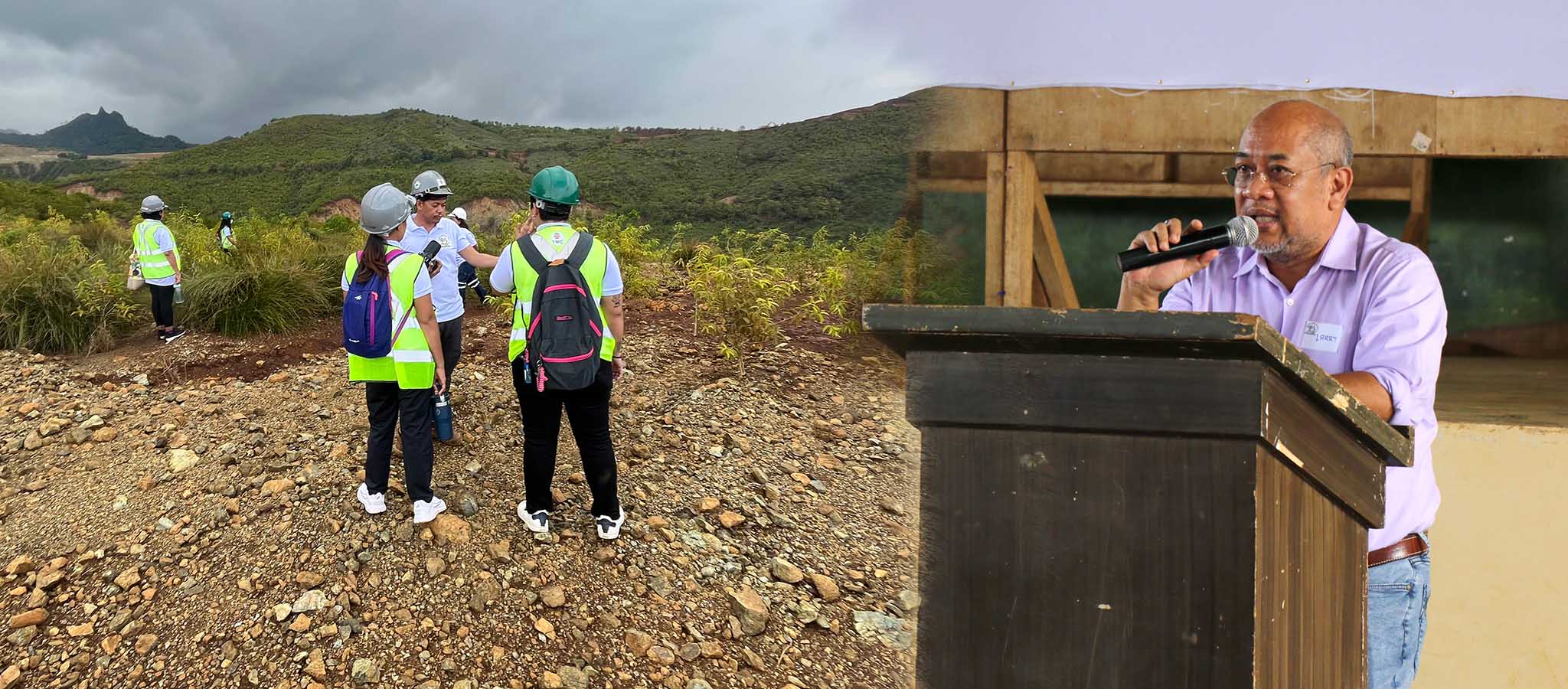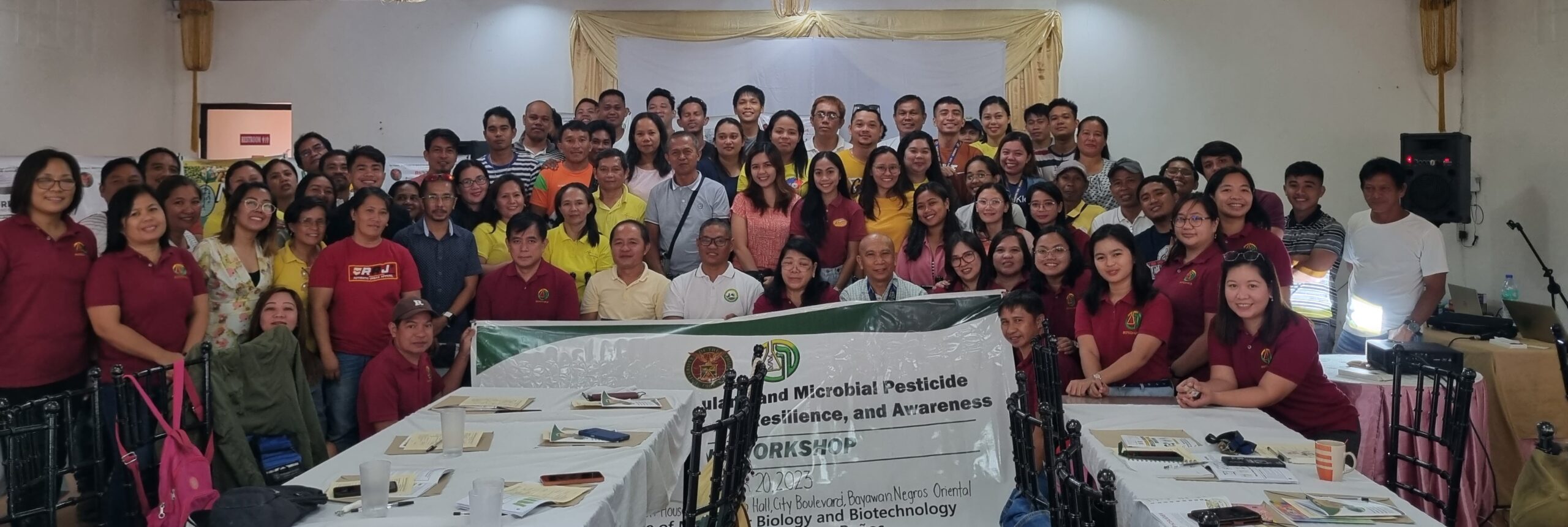
UPLB-BIOTECH research, technologies pushed to enhance Infanta stakeholders’ livelihoods
Locally derived food, feed, and environment technologies of UPLB-BIOTECH were introduced to around 150 farmers, women’s group members, and Southern Luzon State University (SLSU) faculty and students in the coastal town of Infanta, Quezon during the Stakeholders Forum and Orientation on Products, Innovation, and Services of UPLB-BIOTECH on 15 August 2023 at SLSU – Infanta Campus. The activity aimed to share BIOTECH’s expertise and technologies, and complement SLSU’s project titled “Community Based Integrated Farming System – Family Farm Model”, which, according to their Infanta Campus Director Dr. Reydante A. Oabel, sought to address food security issues through development and community engagement initiatives.
BIOTECH Program Leader for Technology Transfer and Business Development Dr. Ronilo P. Violanta said that the forum marks the start of collaborative activities of BIOTECH, SLSU-Infanta, and stakeholders in Northern Quezon. SLSU-Infanta Research Coordinator Dr. Violeto N. Coronacion said that BIOTECH products will enhance farming and food processing livelihoods in Northern Quezon, and that SLSU serves as partner in research and extension of BIOTECH products.
Researchers of BIOTECH’s Food, Feed, and Specialty Products Program discussed the science, benefits, and application of technologies that were developed as alternatives to conventional food and feed industry inputs. Program Leader Maria Teresa M. Perez talked about food safety including contamination risks along the food supply chain. University Researchers Jennifer D. Saguibo and Margarita A. Mercado discussed how BIOTECH’s probiotics starter culture added to yogurt and red sauerkraut enhances the foods’ beneficial gut health properties. Dr. Violanta introduced the microbial-based Monascus RED colorant as an advantageous alternative to synthetic colorants. University Researcher Rober Angelo R. Almazan demonstrated the efficacy of BIOTECH’s Microbial Rennet in white cheese (kesong puti) making; while Project Technical Assistant Lorenz Phillip A. Leonardo discussed how BIOTECH’s probiotics feed technology enhanced livestock and aquaculture from the trials and studies conducted.
Infanta farmers including lambanog (palm liquor) and vinegar processors also learned from BIOTECH’s Industry, Energy, and Environment Program session which focused on fermentation technologies and biosecurity. Program Leader Irene G. Pajares presented an overview of the lambanog industry and methods on alcohol production from nipa sap, while University Researcher Johnry S. Maloles discussed the science behind vinegar processing from nipa sap, and the local and global market of vinegar. UP Scientist Dr. Francisco B. Elegado gave an overview of probiotics and its industrial applications, as well as the general production process at BIOTECH. Dr. Richard D. Tambalo explained the importance of biosecurity in the animal industry and shared useful farm methods to avoid spread of animal diseases.
Aside from being an important coastal town, Infanta, as per its Office of the Municipal Agriculturist, is also a major producer of lambanog in Quezon province because of the rich mangrove forest in the area. (Sophia M. Mercado)



